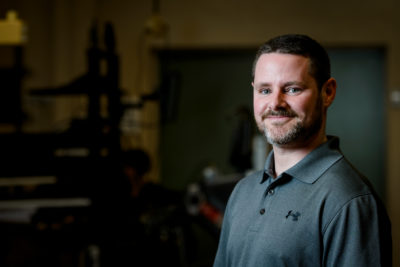June 23, 2022
 The Canadian Society for Exercise Physiology (CSEP) and the University of New Brunswick and Université de Moncton are pleased to announce the return of CSEP’s in-person annual conference! There is a great line-up of Symposia to look forward to and we’ve interviewed each presenter to give you a preview of what to expect and how attending will benefit you.
The Canadian Society for Exercise Physiology (CSEP) and the University of New Brunswick and Université de Moncton are pleased to announce the return of CSEP’s in-person annual conference! There is a great line-up of Symposia to look forward to and we’ve interviewed each presenter to give you a preview of what to expect and how attending will benefit you.
In this feature we talk to Kevin Power, a Professor in the School of Human Kinetics and Recreation at Memorial University of Newfoundland. Kevin is presenting the “Symposium 18: Endurance training adaptations in spinal motoneurones: potential implications for locomotion and assessment in humans using high-density surface EMG?” at CSEP 2022. Kevin’s co-presenters include Duane Button and Gregory Pearcey
What are you most looking forward to about an in-person conference this year?
Like most attendees, I am looking forward to face-to-face interactions with colleagues…it’s been far too long since I’ve seen most of them and had a significant scientific interaction!
What can CSEP certified members learn from attending the symposium you’re chairing that they can apply to their practice?
The value of endurance training for improving fitness and as a rehabilitation paradigm are well described for various bodily systems such as metabolism and the cardiovascular system. While this symposium will be heavily focused on basic science, an important aspect is to remember is that endurance training has major implications for the motor system. Without a healthy motor system movement becomes difficult and health deteriorates. Understanding how the nervous system adapts to endurance training is thus fundamental to assisting those with motor impairments regain as much function as possible.
What do you think makes this topic and the content unique to the CSEP conference?
This topic is a combination of basic neuroscience and exercise, in other words, exercise neuroscience. This kind of topic is more typically reserved for neuroscience related conferences. It is somewhat unique to the CSEP conference because all of the attendees are interested in exercise and physical activity.
What advice or recommendations would you offer any early career researchers / young investigators or students who have an interest in this field?
Becoming an academic is a competitive process, so first off be sure that it is something you really want to do. If so, the best advice I can give is to get to know people and explore your options! There are many excellent neuroscience/neuromuscular exercise physiology labs in Canada and a lot of the professors know each other. Speaking with people about your interests to ensure that you get to do the work that really interests you will make it worthwhile.





